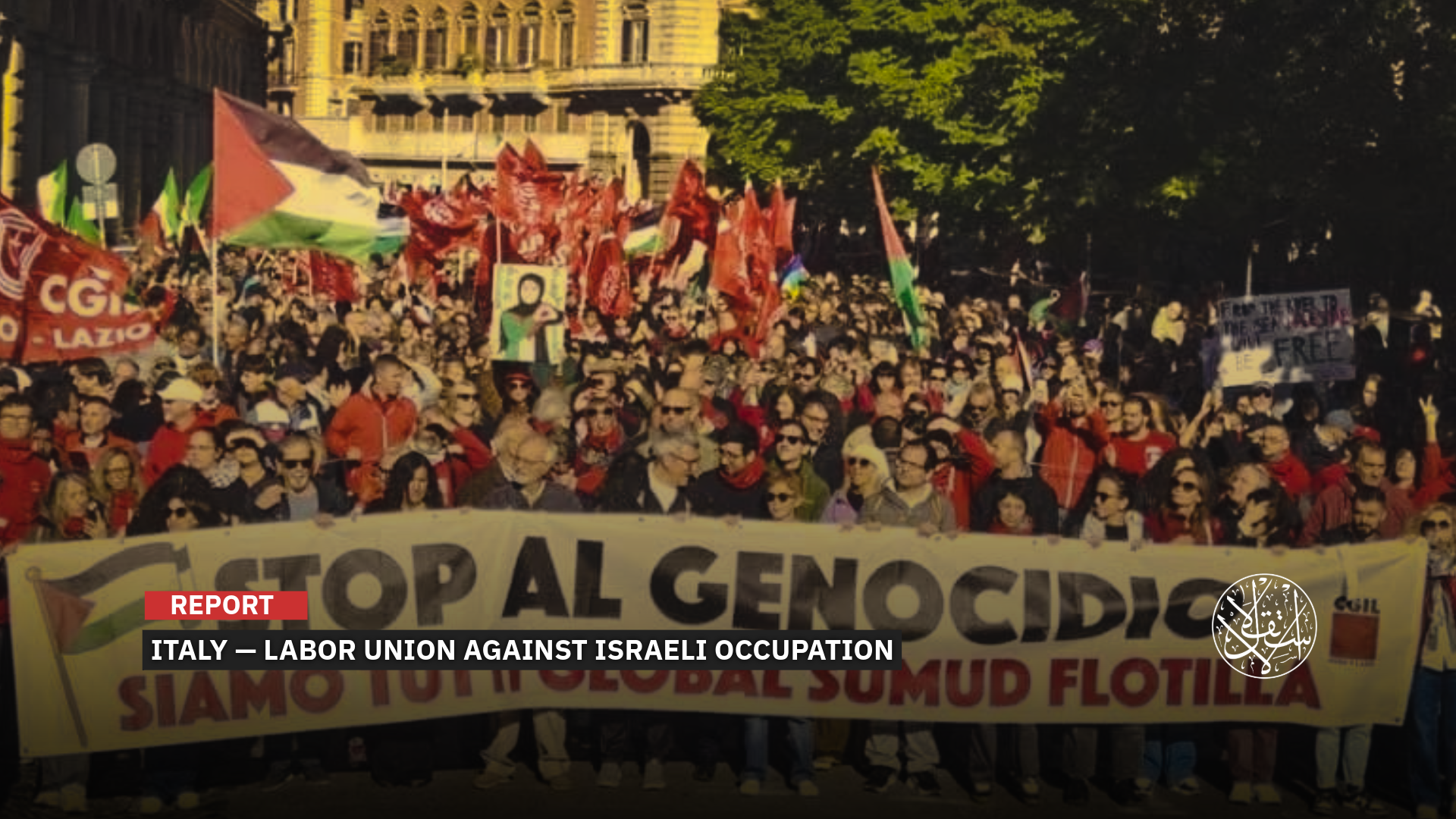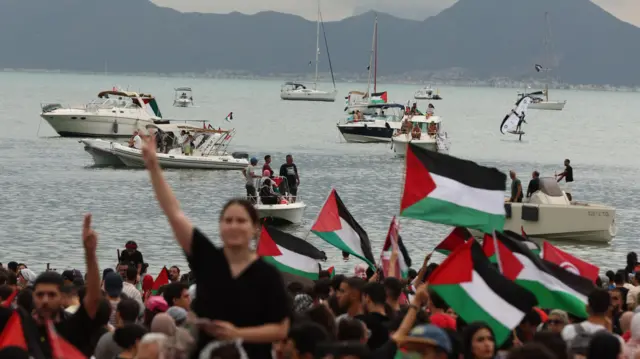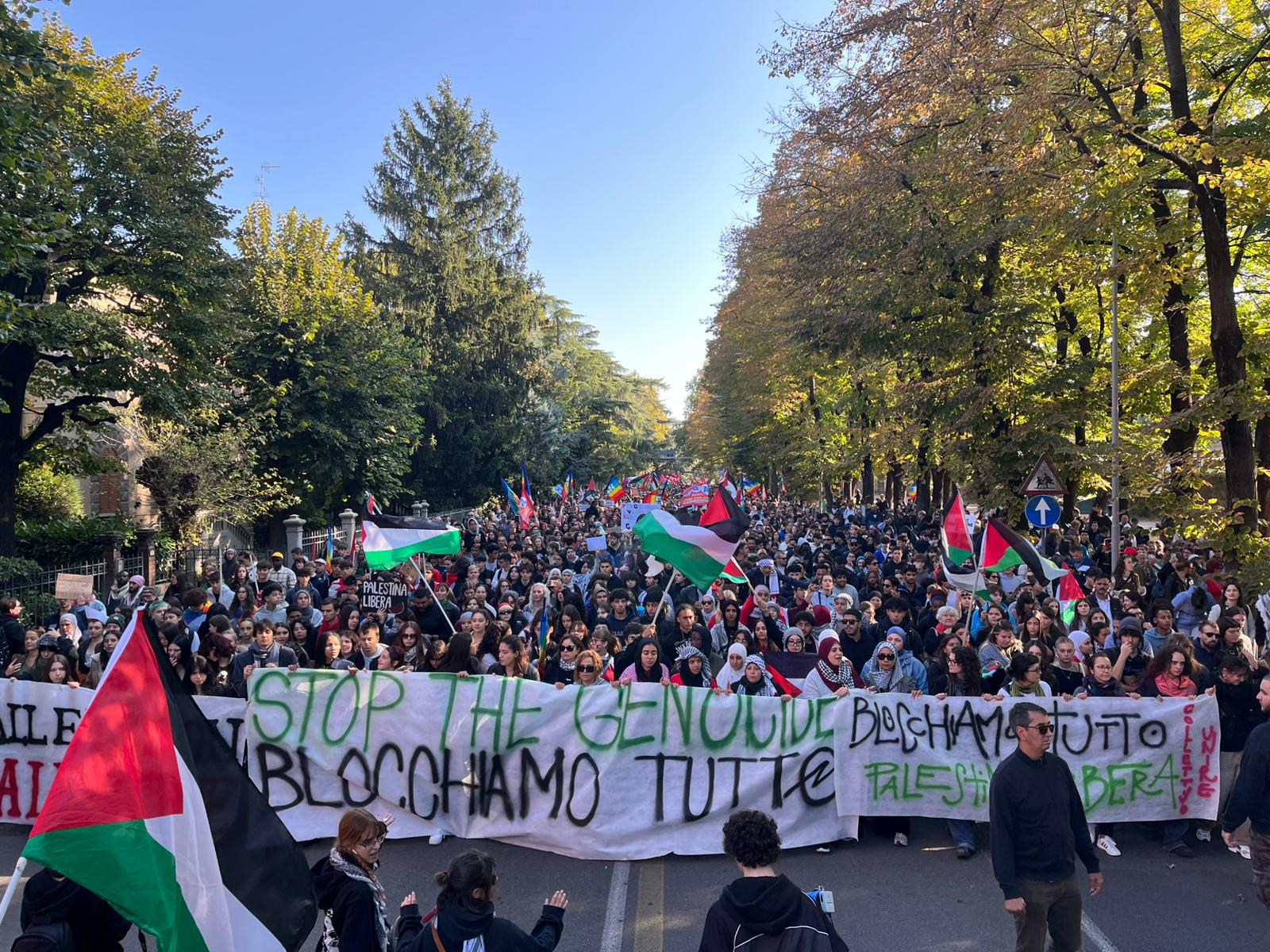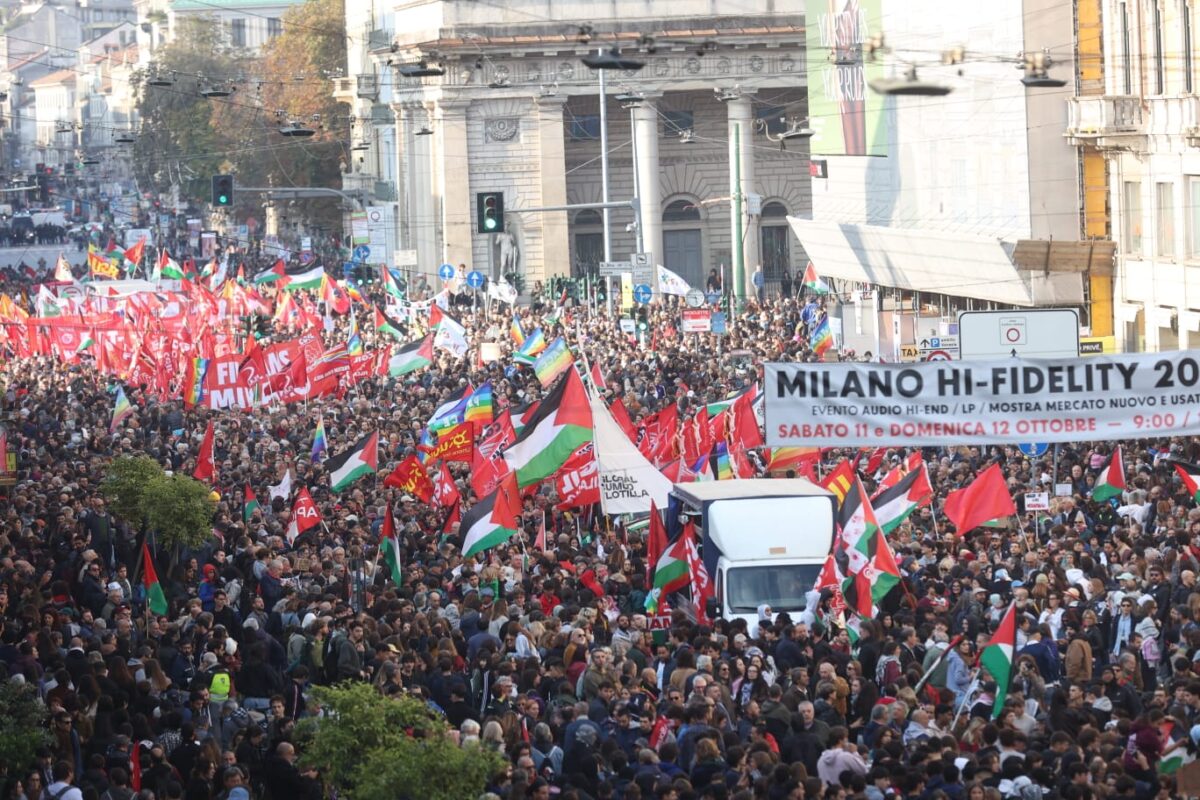How Italy’s Labor Union Became Europe’s Strongest Popular Front Against the Israeli Occupation

The Italian General Confederation of Labor is the country’s oldest and most representative trade union.
In a scene unseen in Europe for years, parts of Italy came to a standstill as cities from Rome to Milan, Naples, and Cagliari were paralyzed by a 24-hour general strike in solidarity with Gaza and in protest against “Israel’s” war on the Strip.
Palestinian flags flew over train stations, ports, and factories, as millions filled the streets demanding that their government cut ties with Tel Aviv.
What stood out, however, was not only the scale of public participation but also the force behind it; the Italian General Confederation of Labor (CGIL), the country’s oldest and most powerful trade union, which chose to turn solidarity with Gaza from words into action, framing the defense of Palestine as a moral and labor issue before a political one.

General Strike
Days before the ceasefire in Gaza, a nationwide standstill gripped Italy on Friday, October 3, 2025, as hundreds of thousands of workers, employees, and citizens joined a general strike called by the Italian General Confederation of Labor (CGIL). The 24-hour strike paralyzed Italy, shutting down transport, aviation, railways, and key public and private services nationwide.
This began as a humanitarian response to “Israel’s” interception of the “Global Sumud Flotilla” earlier that month, a convoy headed to Gaza to break the illegal Israeli blockade and deliver essential supplies. But it quickly evolved into a sweeping national protest against Prime Minister Giorgia Meloni’s government, widely criticized for yielding to Israeli Occupation and U.S. pressure.
In Rome, tens of thousands packed Piazza dei Cinquecento, waving Palestinian flags and chanting in unison. The Union estimates put the crowd at around 150,000. In Milan, between 30,000 and 100,000 demonstrators filled the streets, shouting “Free Palestine” and “Stop the massacres,” and singing the Italian resistance anthem Bella Ciao in solidarity with Gaza.
In Naples, some 50,000 people joined what became known as the “March for Palestine.” Florence and Bologna each saw more than 100,000 protesters, while Turin drew over 60,000. More than 50,000 took to the streets in Brescia and Genoa, 30,000 in Livorno and Palermo, and around 20,000 in Pisa, Padua, and Venice.
In Cagliari, on the island of Sardinia, thousands marched from Garibaldi Square through the city center despite suspended public transport, underscoring that solidarity with Gaza had spread far beyond Italy’s major cities.
The protests were more than symbolic acts; they marked the unions’ return to the heart of public life after years of retreat, reigniting a national debate over justice, solidarity, and the rights of oppressed peoples.
Clash with the Government
Public opinion polls showed that between 62 and 72 percent of Italians supported both the nationwide strike and the “Sumud Flotilla” to Gaza, with nearly half of right-wing voters backing the initiative as well, according to surveys by the Italian research firms SWG and Izi.
The strike was not a spontaneous act but the culmination of months of mobilization for Gaza, led by the Italian General Confederation of Labor (CGIL) in coordination with student movements and Arab and Muslim communities across Italy. Together, they turned solidarity with Gaza into a permanent feature of the national conversation.
Even threats from Minister of Infrastructure and Transport Matteo Salvini, leader of the right-wing Lega party, failed to deter the unions. Salvini dismissed the strike as “illegal” and warned of personal penalties for participants.
“This is not just any strike. We’re here today to defend brotherhood among individuals, among peoples, to put humanity back at the center, to say no to genocide, to a policy of rearmament,” CGIL leader Maurizio Landini said.
He added that governments may stay silent, but ordinary people still defend human values. It’s the demonstrators who pay taxes and keep this country running. The government should listen instead of threatening them, according to Landini.
Prime Minister Giorgia Meloni accused the union of “politicizing foreign issues” and “disrupting Italians’ weekend plans.” Landini responded sharply, saying he had not expected the prime minister to stoop so low and insisting that the union was not harming Italy but rather trying to save its soul from complicity in genocide.
The standoff exposed a widening rift between a nationalist right that anchors its foreign policy in alignment with Washington and Tel Aviv and a social left that views solidarity with Palestine as a moral duty.

Growing Influence
According to a report by Jacobin magazine on October 3, 2025, Italy’s General Confederation of Labor (CGIL) has revived the spirit of international solidarity that had largely faded across Europe in recent decades. Its firm stance on Gaza has visibly influenced labor movements in other European countries.
In France, the General Confederation of Labor (CGT) issued a similar statement of support; in Spain, the Workers’ Commissions (CCOO) joined solidarity rallies; and in Greece, the Dockworkers’ Union called for a boycott of Israeli Occupation ships.
Jacobin noted that, in this sense, Italy, thanks to the CGIL’s mobilization, has become a new European platform for solidarity with Palestine at a time when most governments either stand behind “Israel” or remain silent.
The magazine added that the union’s actions go beyond humanitarian advocacy, marking the return of organized labor to the center of political debate after years of marginalization. It argued that the “labor conscience” now stands as an alternative to political elites that have failed to confront, and in many cases abetted, the Israeli genocide that had been ongoing for two years in Gaza.
The CGIL is Italy’s oldest and most representative labor union, with more than five million members spanning sectors from industry and education to health and transport. Founded in 1944 after the fall of the Fascist regime, the CGIL brought together communists, socialists, and Christian democrats in a broad coalition that helped shape postwar Italy.
Since then, it has been a cornerstone of the Italian Republic, instrumental in building the welfare state and establishing key labor and social protection laws.
What distinguishes the CGIL, however, is that its mission has never stopped at defending domestic workers’ rights. From its inception, it has embraced an internationalist vision that sees solidarity with oppressed peoples as a natural extension of the labor struggle.
Within that vision, Palestine has never been a distant cause but a recurring theme in its statements, conferences, and mobilizations.

Alignment with Palestine
In the 1970s, as the Palestine Liberation Organization (PLO) fought for international recognition, Italy’s General Confederation of Labor (CGIL) emerged as one of the first European institutions to publicly advocate for the Palestinian people and their right to self-determination.
At the time, the union organized boycotts of companies involved in Israeli Occupation settlement activities and participated in international conferences against racial discrimination and Zionism.
During the 1980s, the CGIL supported solidarity movements for Palestinian refugees in Lebanon and sent labor delegations to refugee camps to provide assistance.
In the 1990s, even as much of the European left retreated from its anti-colonial positions, the CGIL held its ground. It criticized the “1993 Oslo Accords” as an unjust settlement that entrenched Palestinian dependency rather than securing genuine sovereignty.
After 2007, when the Israeli Occupation imposed its blockade on Gaza, the CGIL called for its immediate end and joined efforts supporting humanitarian flotillas bound for the Strip—including the “Freedom Flotilla” and the “Global Sumud Flotilla,” whose interception later became the trigger for the October 2025 strike.
On October 3, 2025, Politico highlighted the union’s central role in mobilizing Italy’s masses. After years of social stagnation in southern Europe, Italy has returned to the forefront of grassroots activism. For the besieged people of Gaza, this Italian uprising has become an unexpected source of hope.
The magazine said this movement carries immense humanitarian and political weight, as it pressures Western governments to reconsider their support for “Israel” and to realign with the principles of international law.
Without this official Western backing, “Israel’s” machinery of destruction would collapse, and in that sense, the mobilization of the Italian public now represents a tangible source of hope for the people of Gaza.
Sources
- Mass protests and strikes for Gaza bring Italy to a standstill
- Pressure mounts on Meloni’s gov’t as Gaza protests paralyse Italy
- Gaza Has Sparked Italy’s Biggest Protests in Years
- General Strike Sweeps Italian Cities in Solidarity with Gaza Amid Sharp Political Clash Between Government and Unions [Arabic]
- Mass Protests in Italy in Support of the Global Steadfastness Fleet [Arabic]











